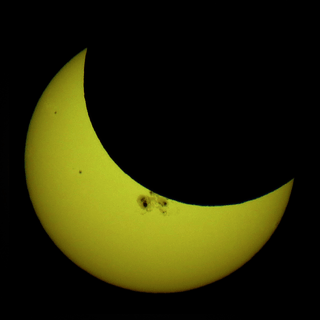Solar eclipse of August 22, 1998
An annular solar eclipse occurred on August 22, 1998. A solar eclipse occurs when the Moon passes between Earth and the Sun, thereby totally or partly obscuring the image of the Sun for a viewer on Earth. An annular solar eclipse occurs when the Moon's apparent diameter is smaller than the Sun's, blocking most of the Sun's light and causing the Sun to look like an annulus (ring). An annular eclipse appears as a partial eclipse over a region of the Earth thousands of kilometres wide. Annularity was visible in Indonesia, Malaysia, Papua New Guinea, Solomon Islands (Bellona Island and Rennell Island) and Vanuatu.
| Solar eclipse of August 22, 1998 | |
|---|---|
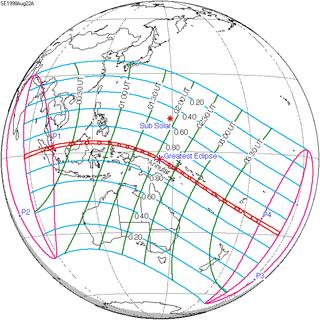 Map | |
| Type of eclipse | |
| Nature | Annular |
| Gamma | -0.2644 |
| Magnitude | 0.9734 |
| Maximum eclipse | |
| Duration | 194 sec (3 m 14 s) |
| Coordinates | 3°S 145.4°E |
| Max. width of band | 99 km (62 mi) |
| Times (UTC) | |
| Greatest eclipse | 2:07:11 |
| References | |
| Saros | 135 (38 of 71) |
| Catalog # (SE5000) | 9504 |
Images
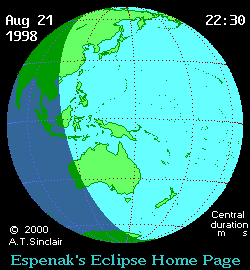
Related eclipses
Eclipses of 1998
Solar eclipses 1997–2000
This eclipse is a member of a semester series. An eclipse in a semester series of solar eclipses repeats approximately every 177 days and 4 hours (a semester) at alternating nodes of the Moon's orbit.[1]
| Solar eclipse series sets from 1997–2000 | ||||||
|---|---|---|---|---|---|---|
| Descending node | Ascending node | |||||
| Saros | Map | Gamma | Saros | Map | Gamma | |
120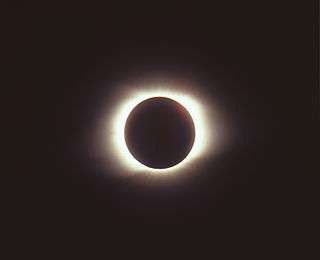 Chita, Russia | 1997 March 9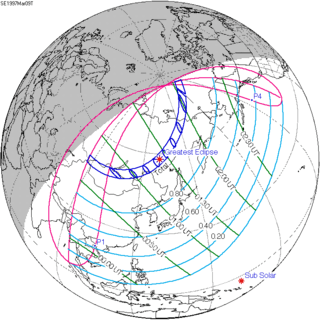 Total | 0.91830 | 125 | 1997 September 2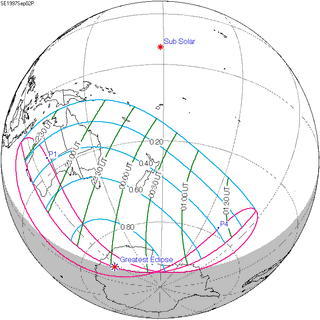 Partial | -1.03521 | |
130.jpg) Total eclipse near Guadelope | 1998 February 26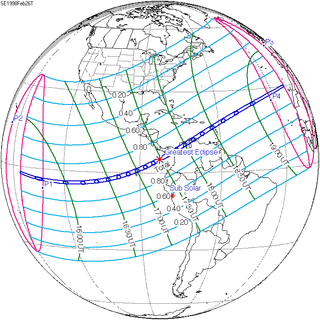 Total | 0.23909 | 135 | 1998 August 22 Annular | -0.26441 | |
| 140 | 1999 February 16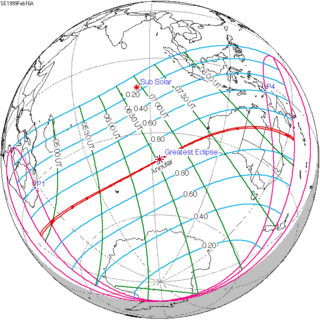 Annular | -0.47260 | 145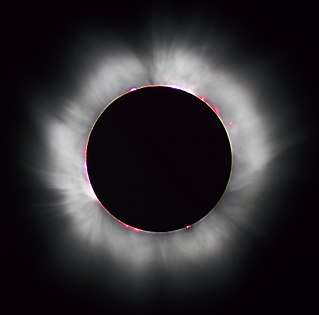 Totality from France | 1999 August 11 Total | 0.50623 | |
| 150 | 2000 February 5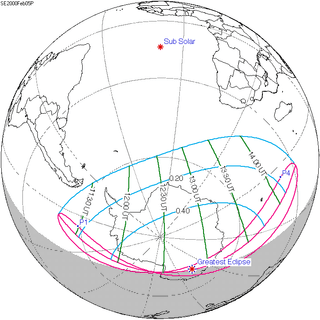 Partial | -1.22325 | 155 | 2000 July 31 Partial | 1.21664 | |
| Partial solar eclipses on July 1, 2000 and December 25, 2000 occur in the next lunar year eclipse set. | ||||||
Saros 135
It is a part of Saros cycle 135, repeating every 18 years, 11 days, containing 71 events. The series started with partial solar eclipse on July 5, 1331. It contains annular eclipses from October 21, 1511 through February 24, 2305, hybrid eclipses on March 8, 2323 and March 18, 2341 and total eclipses from March 29, 2359 through May 22, 2449. The series ends at member 71 as a partial eclipse on August 17, 2593. The longest duration of totality will be 2 minutes, 27 seconds on May 12, 2431.
| Series members 27–43 occur between 1800 and 2100: | ||
|---|---|---|
| 27 | 28 | 29 |
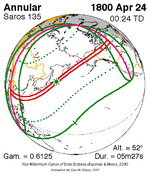 Apr 24, 1800 |
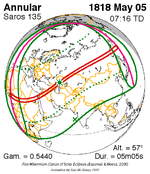 May 5, 1818 |
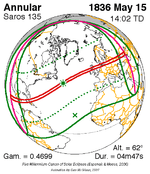 May 15, 1836 |
| 30 | 31 | 32 |
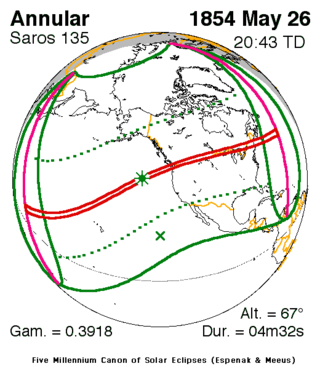 May 26, 1854 |
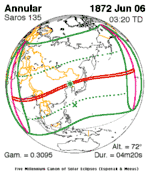 Jun 6, 1872 |
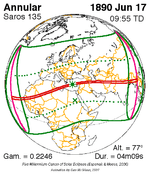 Jun 17, 1890 |
| 33 | 34 | 35 |
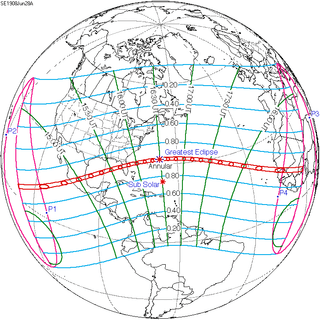 Jun 28, 1908 |
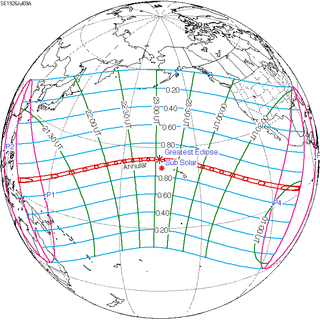 Jul 9, 1926 |
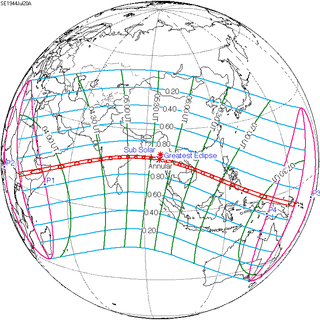 Jul 20, 1944 |
| 36 | 37 | 38 |
 Jul 31, 1962 |
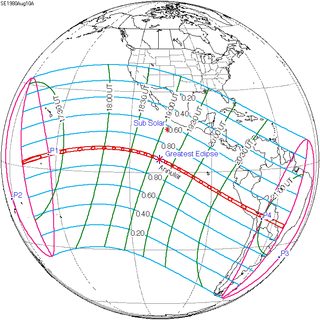 Aug 10, 1980 |
 Aug 22, 1998 |
| 39 | 40 | 41 |
 Sep 1, 2016 |
 Sep 12, 2034 |
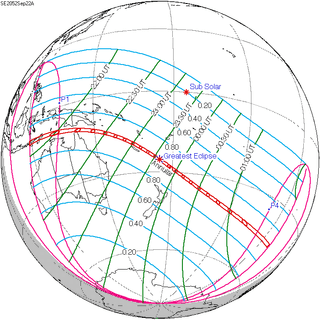 Sep 22, 2052 |
| 42 | 43 | |
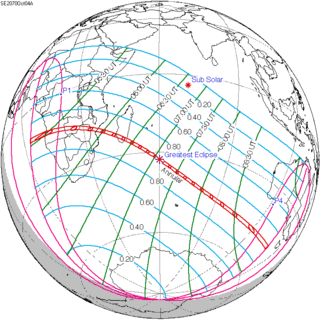 Oct 4, 2070 |
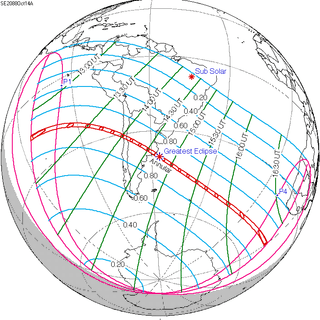 Oct 14, 2088 | |
Metonic series
The metonic series repeats eclipses every 19 years (6939.69 days), lasting about 5 cycles. Eclipses occur in nearly the same calendar date. In addition, the octon subseries repeats 1/5 of that or every 3.8 years (1387.94 days). All eclipses in this table occur at the Moon's ascending node.
| 21 eclipse events, progressing from south to north between June 10, 1964, and August 21, 2036 | ||||
|---|---|---|---|---|
| June 10–11 | March 27–29 | January 15–16 | November 3 | August 21–22 |
| 117 | 119 | 121 | 123 | 125 |
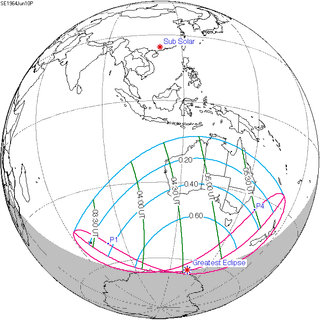 June 10, 1964 |
 March 28, 1968 |
 January 16, 1972 |
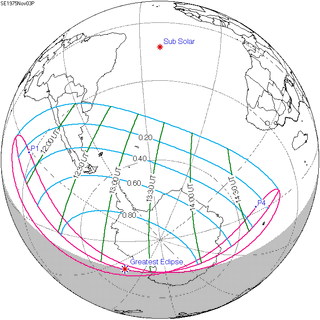 November 3, 1975 |
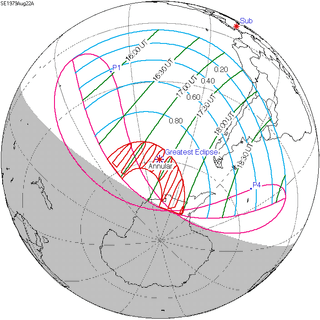 August 22, 1979 |
| 127 | 129 | 131 | 133 | 135 |
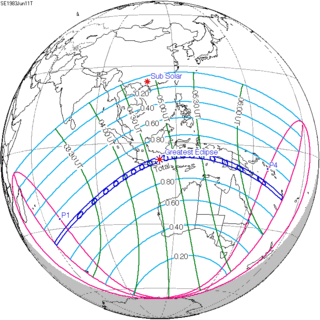 June 11, 1983 |
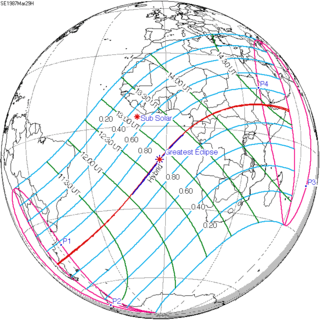 March 29, 1987 |
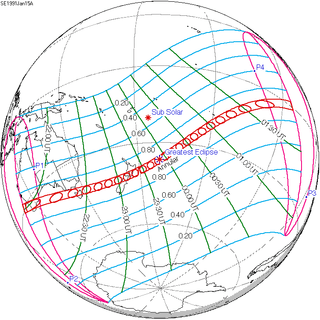 January 15, 1991 |
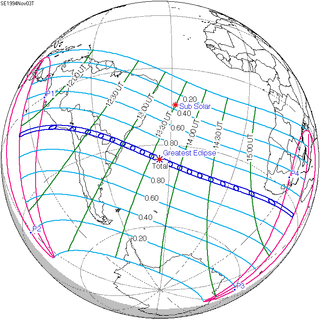 November 3, 1994 |
 August 22, 1998 |
| 137 | 139 | 141 | 143 | 145 |
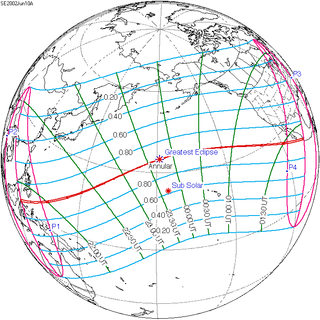 June 10, 2002 |
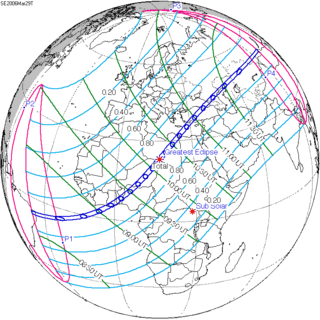 March 29, 2006 |
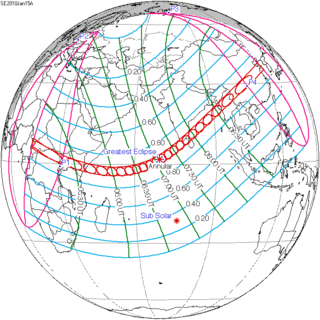 January 15, 2010 |
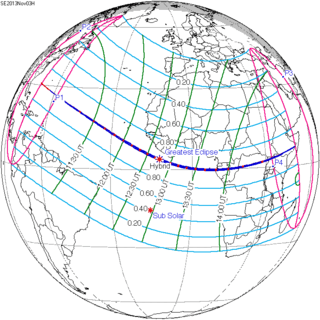 November 3, 2013 |
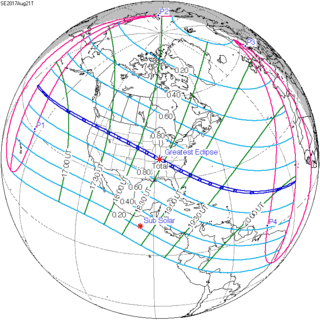 August 21, 2017 |
| 147 | 149 | 151 | 153 | 155 |
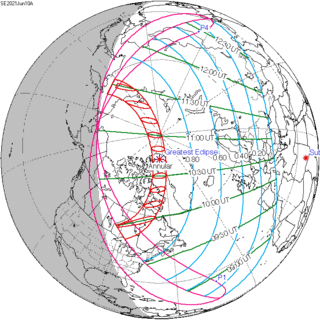 June 10, 2021 |
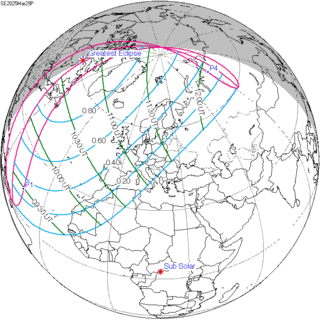 March 29, 2025 |
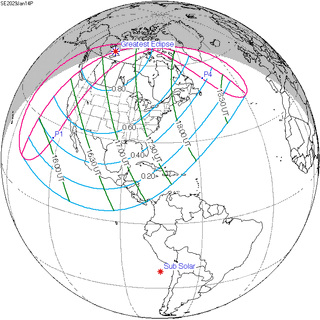 January 14, 2029 |
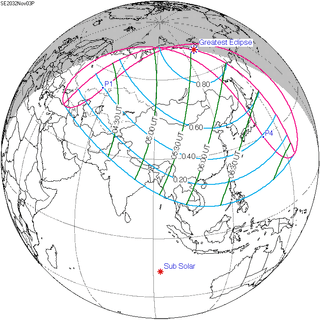 November 3, 2032 |
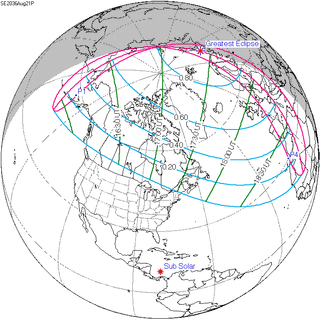 August 21, 2036 |
Notes
- van Gent, R.H. "Solar- and Lunar-Eclipse Predictions from Antiquity to the Present". A Catalogue of Eclipse Cycles. Utrecht University. Retrieved 6 October 2018.
References
- Earth visibility chart and eclipse statistics Eclipse Predictions by Fred Espenak, NASA/GSFC
Photos:
- An Annular Eclipse of the Sun APOD 8/24/1998, from Mersing on the East Coast of Malaysia
.jpg)
